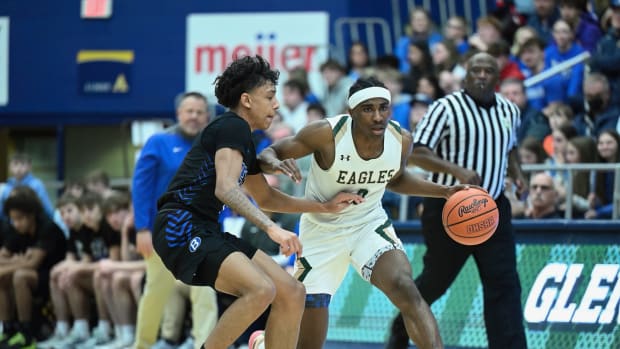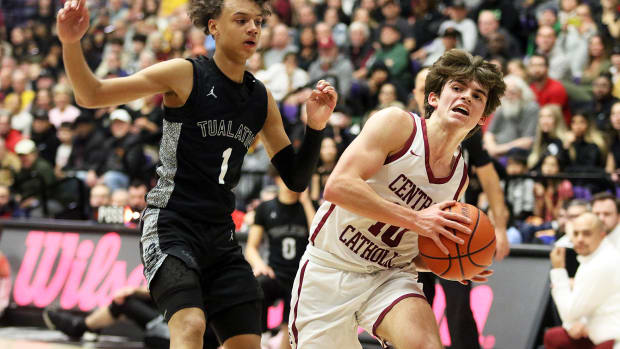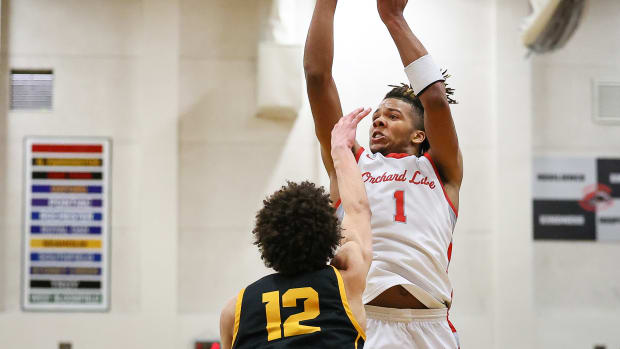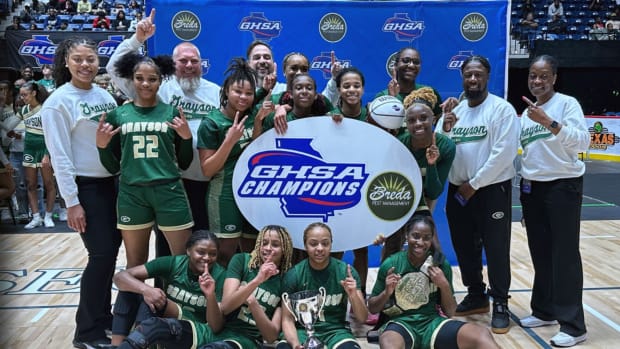Q&A with Rob Wigod: How the CIF and the Southern Section are planning for 2020-2021 high school sports in California
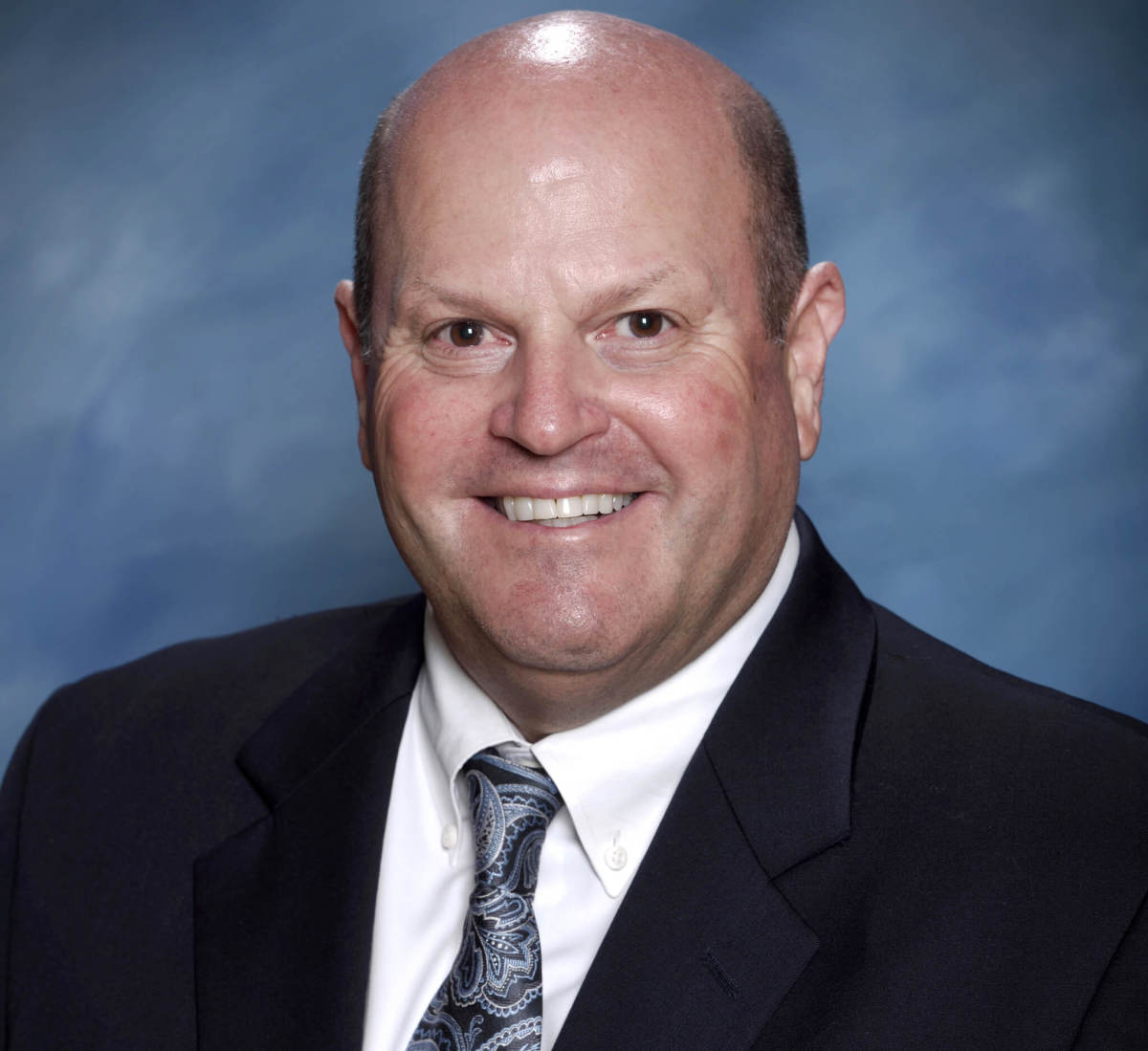
With California high school sports and in-person education canceled for the rest of the 2019-2020 school year, uncertainty looms about what sports in a high school setting might look like in the summer, fall and beyond.
Earlier this week, CIF Southern Section commissioner Rob Wigod spoke with Scorebook Live about contingency plans for high school sports in 2020-2021, as well as the new rules that were recommended by the Southern Section Executive Council.
You can listen to the full interview with Wigod here.
Below are the highlights and most pertinent information from the podcast:
(Editor’s note: Questions and answers have been edited for clarity)
Scorebook Live: What needs to happen for high school sports to be played in the Southern Section in the coming months and how do you balance all of the different jurisdictions at the district and county level when it becomes safer to play?
Rob Wigod: There are different start dates for public schools and private schools. Decisions have to be made on the local level. Public schools, superintendents, private school heads of schools, school boards, they're going to have to decide when they're going to bring academics back. And we are an academically based organization. Our motto is academics, integrity, athletics. So it's academics first. And they are going to have to decide when they bring academics back. And when they do, then they have to decide when they bring athletics back.
We have a spreadsheet of every single public school district. We have one for many of our private schools as well and we will continue to monitor and keep track of the dates that they have published and the dates they are planning to open.
And then the big challenge that we're going to have is when there are enough of our schools back and enough of them who've resumed athletics, we would then be able to put together a calendar to conduct section championships and a regular season with an emphasis on league play. So that's the position that we're in now.
And people will just have to realize that following the recommendations and guidelines from our health professionals, each of our schools will have a decision to make and we support them in those decisions. They know their communities best. They know their constituencies the best. And because of that, they're the best people to decide when they believe their campus is ready to be back opened up and students be allowed back for academics. It'll be interesting to see if a school decides to go ahead and allow athletic activities even in advance of their first day of instruction. But as I said, that's still going to be their decision.
If they want to allow them on campus to start volleyball practice two weeks before school actually starts, which again, in a normal circumstance, that was very common, they could. But we don't know as we go forward from here. I think everything's on the table.
Scorebook Live: Have you discussed moving seasons around instead of canceling if it gets to that point?
Rob Wigod: My sense in discussions with our leagues and a lot of different folks that we are in contact with, is that they're willing to do almost anything to preserve three seasons of sport if we can do it. So if there's the ability to start the fall sports sometime after the new year and start in January and then have winter sports follow and then spring sports follow after that and finish it all up by the middle of June, I think that's that's on the table as well. Instead of just saying, well, we got to a point with fall sports, we just can't go forward so we have to cancel the fall and focus on starting up the winter. I just get a really strong feeling from our schools that they would like to see some way to keep all three seasons together.
Let's say all the fall sports had to begin in January. Then you have January, February and half of March and you do fall sports. You'd maybe start the winter in the middle of February, you go the middle of February, March and all of April to finish the winter sports. And then for the spring, you start maybe at the beginning of April and you go all of April, all of May and half of June. And so you're looking at approximately two and a half months for each season of sport starting in January and finishing in the middle of June.
I still think that's enough time for viable seasons. We may get to that point. I'd love to see fall sports happen and have them finished in a normal circumstance prior to January, but this is a call to leadership and we need to answer that call. We want to deliver what everybody wants to see happen.
Scorebook Live: What happens if the majority of schools can play football but some can't because of the effects of the virus? How will that affect their playoff eligibility?
Rob Wigod: The key element there is going to be league play. We won't be able to conduct Section championships unless league play is conducted and leagues forward the entries to Section playoffs to us. So some of those issues, if not all of them, are going to be league issues. They would need to resolve that. That's going to be the biggest factor in deciding whether we can do fall sports on a certain calendar or we talk about extending that to another time. The question is can our leagues get the job done?
If they can forward playoff entries to us, then we're ready to roll. If there are issues in a league where a league game didn't get played, they're going to have to determine what the standings look like after a decision on the game is made, because at the end of their league season, they're going to say, here's number one, here's number two and number three from our league.
But it's really difficult, I think, to have leadership of schools who if they make decisions based on their responsibility to their student athletes, their schools, their communities, and they decide that they don't believe it is safe for their team to play, it's kind of hard to make that a forfeiture or call that a no show or basically have some penalty be applied for a decision made that they are empowered to make.
And I don't know that it's any of our jobs to second guess that decision or to say to them, well, we think it was safe for you to play and you just decided not to. I'm not sure that's really fair. And I'm not real comfortable with that because, again, I don't believe our leadership in our schools is in any way wanting to put their students and their coaches and their fans and communities in harm's way. So I think we have to respect their evaluation and assessment of their situation and abide by their decisions, because, again, we're entrusting them to do what's in their best interest. And I know they know that better than anybody else.
Scorebook Live: Have you discussed adopting a statewide transfer rule that addresses the eligibility of athletes affected by the coronavirus if they switch schools?
Rob Wigod: Several discussions have gone on with all 10 Section commissioners and the CIF State office. We have conference calls virtually every week. We have another one coming up this Monday. We've been talking about financial hardship and how this real situation can be addressed through our bylaws. We've also been talking about pre-participation physicals. We know that the ability for students to get physical examinations right now is a difficult, difficult thing.
We're talking a lot about academic eligibility too. So many of our schools are going into a pass/fail credit/no credit type of grading system. How does that apply to the bylaws of maintaining a minimum grade point average of 2.0 and taking a minimum of 20 credits? We're working to be responsive.
Scorebook Live: The Southern Section Executive Council voted to recommend allowing schools to compete in cheer nationals on a Sunday if a team is eligible. Will that open the door for any other sports to be played on a Sunday?
Rob Wigod: So the interesting thing to see is this is a unique and specific exception. It's for one cheer competition that's traditionally been seen as a national championship. It's not the only one, but it's seen that way. It's endorsed by the National Federation of High Schools. And so are other sports going to view that and ask to play on Sundays? They could. But we see cheer as being a different sport and it has kind of a different environment and a different model compared to our other sports.
Other sports are going to say, why are they having an exception on Sunday and why can't we? It's interesting in terms of just a history, because if you look at club sports, travel, sports, etc., I mean, they virtually compete every Saturday and Sunday all year round. And the only time they don't is during the high school season. So there are examples around the country. We have certain states that actually holds state championships on Sundays because they feel that the ability for people to travel to those games and to attend those competitions is actually better on Sunday. I mean, that's their decision. I'm not saying that's what we want to do or not, but there are examples of that.
But certainly the high school rule about Sunday's has been in place a long time and this will be an interesting development if it does pass or not. It was brought forward once already and it was defeated 54 to 30 and the Cheer Advisory Committee and the coaches believe that that wasn't such a far reaching margin. If you break it down, it would basically mean if all 30 leagues voted yes again, they would need to get about 13 of the no votes to to switch over. So they felt that it was worth another effort to try to work with.
It's interesting that the executive committee, the first time they were faced with this, did not vote to recommend support. And then (Wednesday) they did. So the executive committee actually changed their initial decision on that proposal. And just to make sure you know, this is a Southern Section proposal and if it passes our section, that doesn't mean it's going to happen. It has to go to the CIF State Federated Council, which is made up of all 10 sections in the organization, because this is a statewide bylaw that the organization will have to pass in order for it to take effect.
So we could pass it as a Section and send it on to them. Our next [Southern Section] meeting is May 21st. The state Federated Council won't be voting on this in May. It would be introduced to them in October if it passes us and then voted on in January of 2021.
In terms of other sports inquiring about Sundays, I think the great thing about the way we operate is that our member schools make those decisions. The member schools will decide and they will figure out if that's something that they're willing to do or or feel it's beneficial to do. I love the conversation. I think it's important for our Section to have the conversation and our state to continue to talk about some of the important things out there and sort of take the temperature of where we are. Because again, it's a longstanding rule, but there's nothing wrong at all with bringing it up in the year 2020 to decide where we are.

